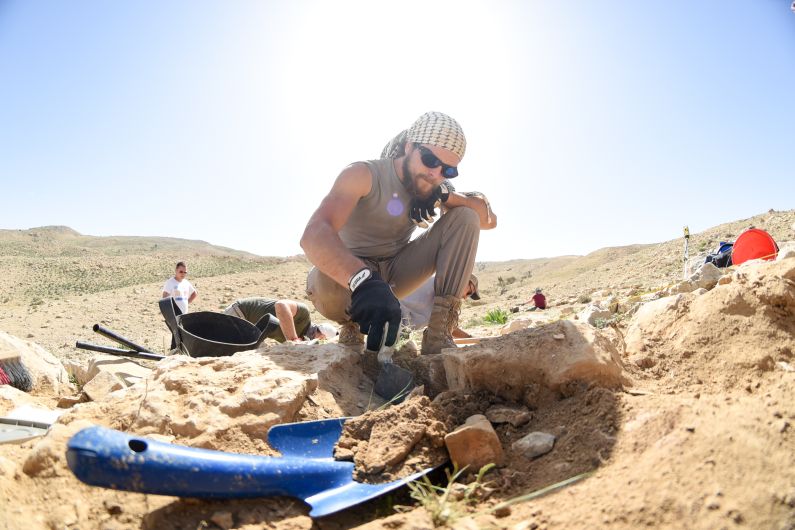Who are the first archaeologists of our human history?
According to tradition, the first recorded archaeological excavation was made by Nabonidus, the last king of Babylon, who ruled from 555-539 BC. Nabonidus' contribution to the science of the past is that he uncovered the cornerstone of a building dedicated to Naram-Sin, grandson of Akkadian king Sargon.

Archeology as a scientific study is about 150 years old.
The earliest evidence of interest in the past is the 18th dynasty Egyptian discoveries that reconstructed the Sphinx between 1550 and 1070 BC.
The first modern archaeologist was John Aubrey, who probably explored Stonehenge and other stone circles in the 17th century AD.
Archeology as a scientific study is about 150 years old. But interest in the past is much older than that. If you broaden the definition enough, probably the earliest retrospective research is when other pharaohs in the New Kingdom (1550-1070 BC) excavated and rebuilt the Sphinx for Pharaoh Khafre during the 4th Dynasty (Old Kingdom, 2575-2134 BC). It is unknown which of the New Kingdom pharaohs wanted the Sphinx restored as there is no written record to support the excavation, but ivory carvings from earlier periods show physical evidence of reconstruction. The Sphinx, on the other hand, was buried up to his head and shoulders in the sand before the New Kingdom excavations.
According to tradition, the first recorded archaeological excavation was made by Nabonidus, the last king of Babylon, who ruled from 555-539 BC. Nabonidus' contribution to the science of the past is that he uncovered the cornerstone of a building dedicated to Naram-Sin, grandson of Akkadian king Sargon. Nabonidus estimated the age of the building foundation at 1500 years. Naram Sim lived around 2250 BC, but radiocarbon dating technology was not available at the time of this archaeological excavation (i.e. the middle of the 6th century BC).
The modern equivalent of Nabonidus is John Aubrey (1626-1697), a British citizen, though not a noble. In 1649 he discovered the stone circle of Avebury and completed the first good plan of Stonehenge. Curious, he traveled the British countryside from Cornwall to the Orkneys, visiting and recording all the stone circles he could find, culminating in the Temple Druidum 30 years later.
And so archeology was born.
